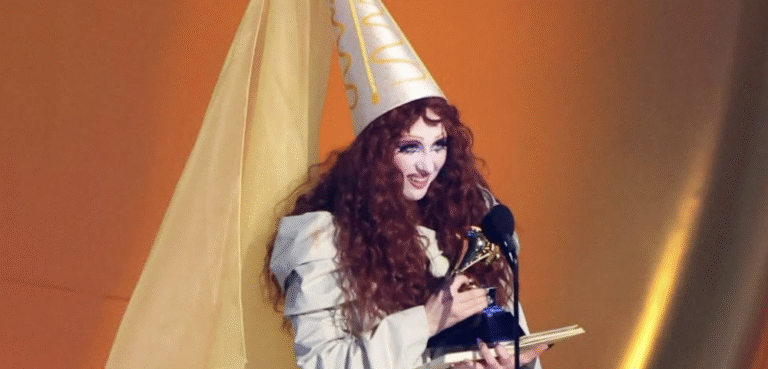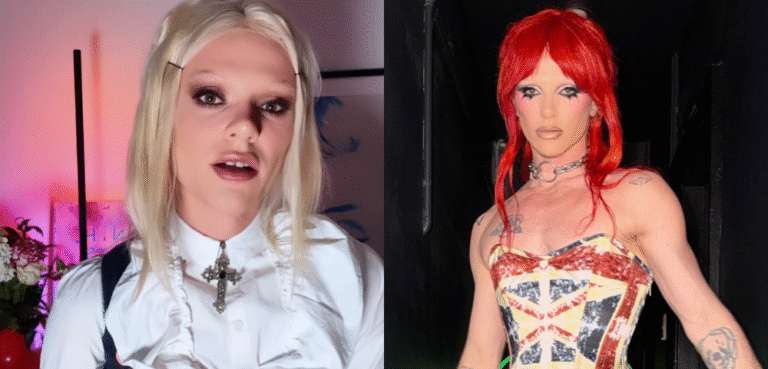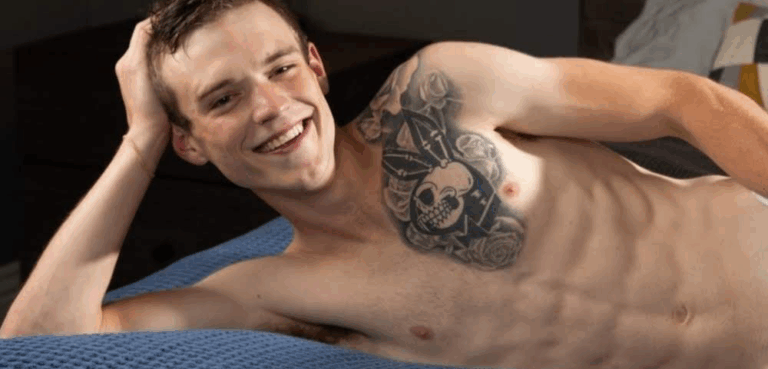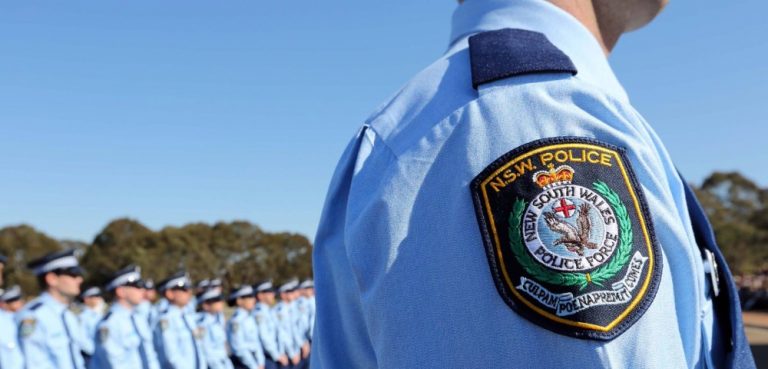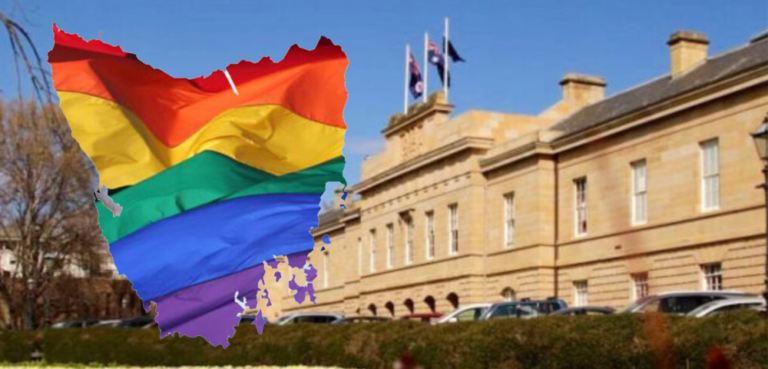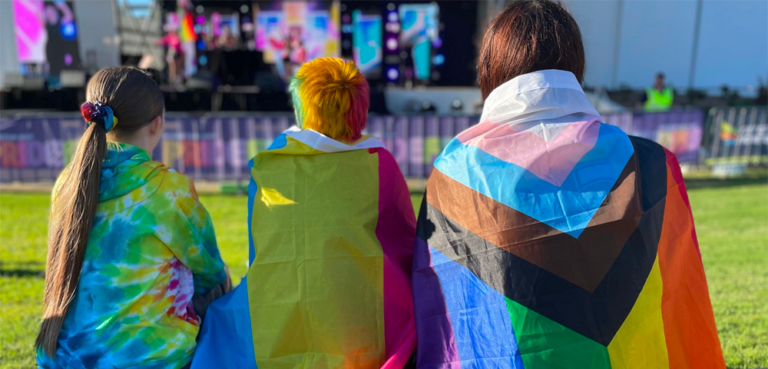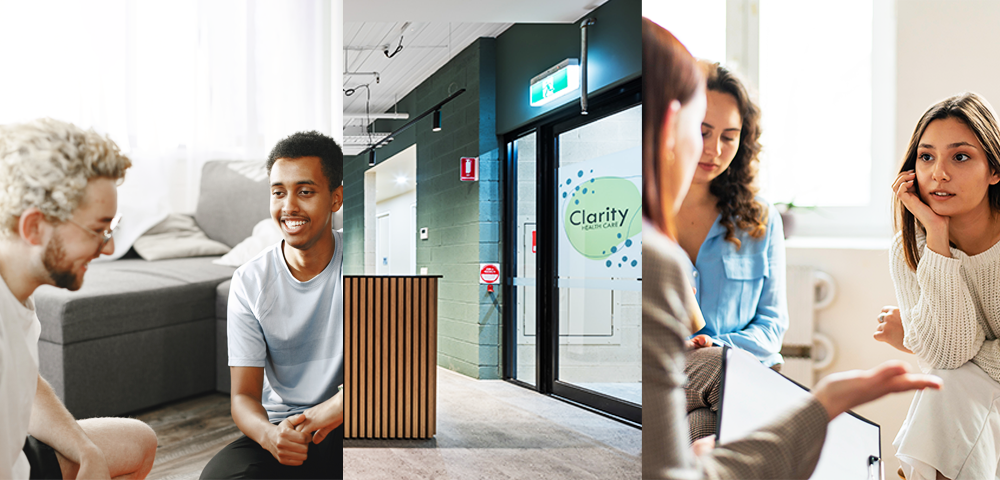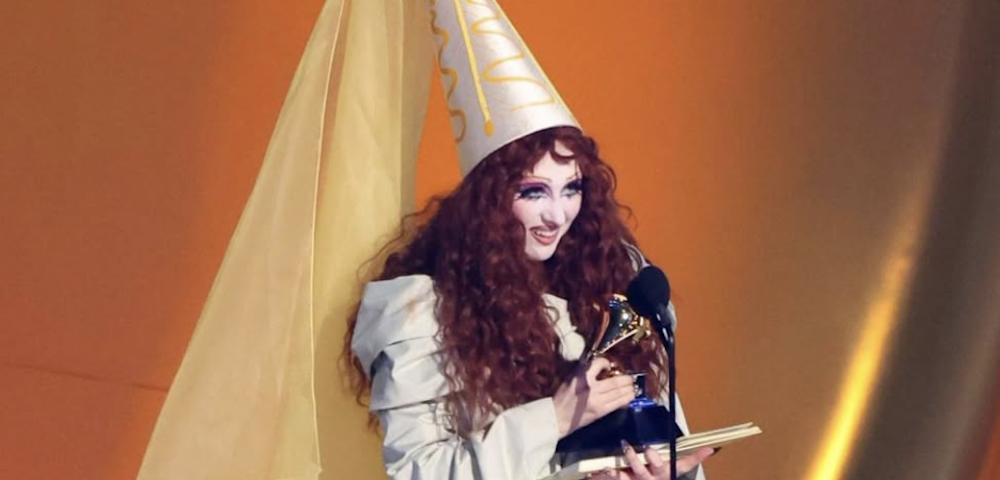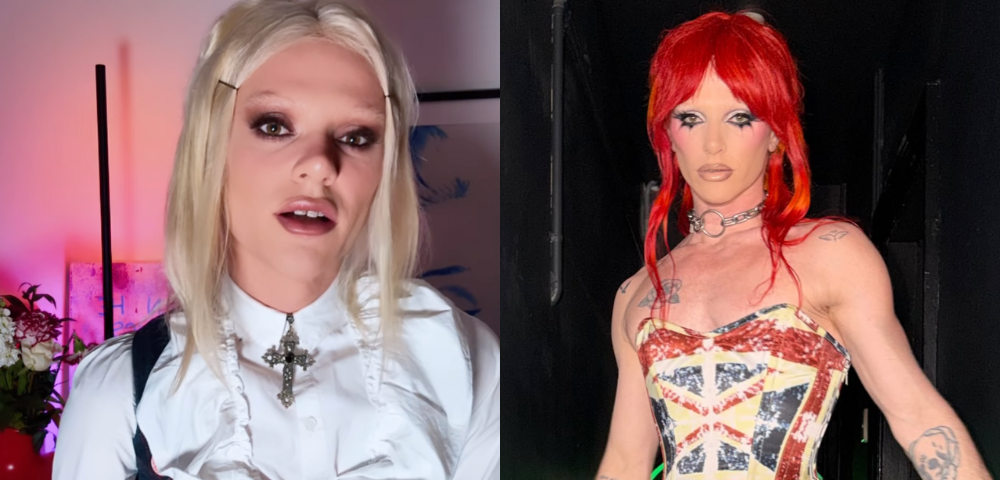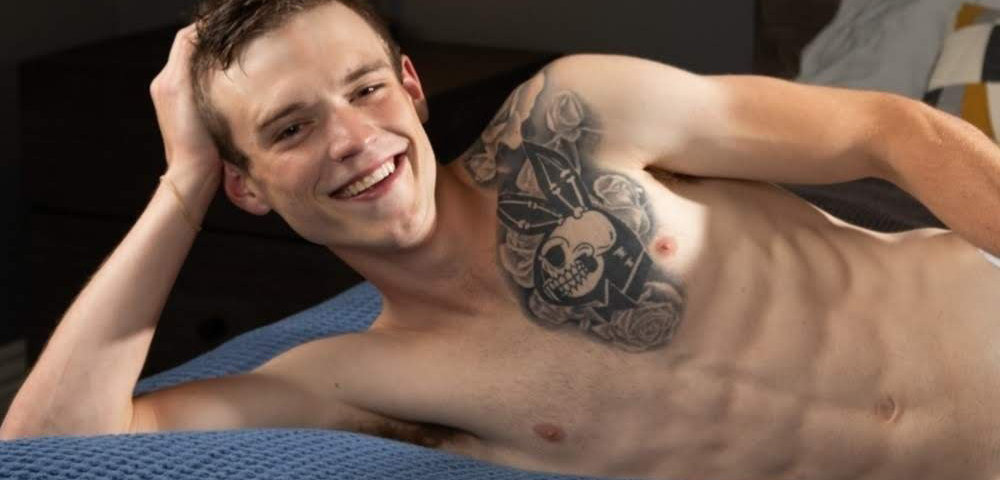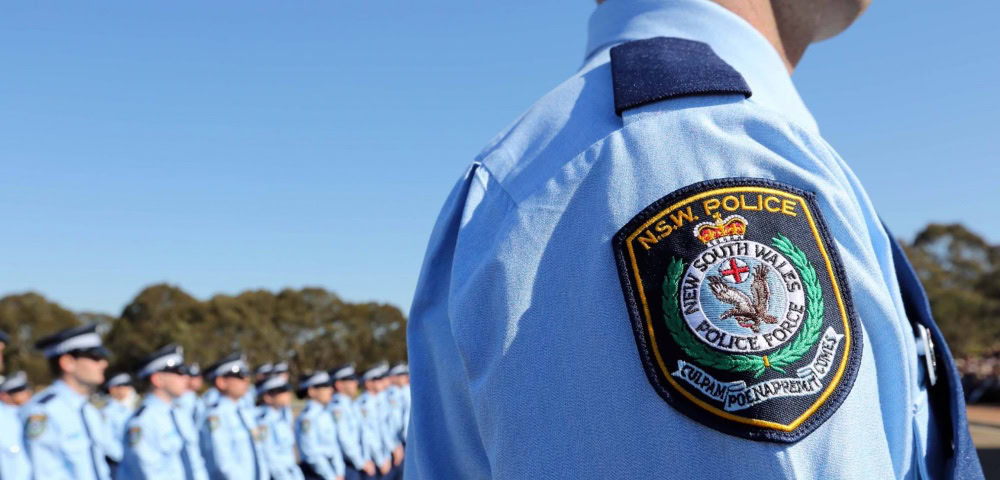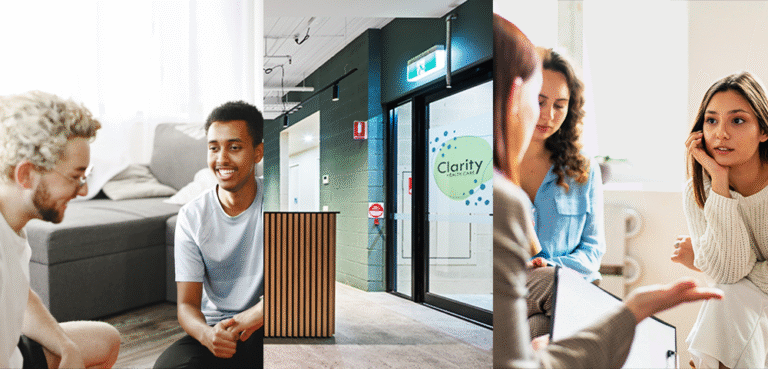
‘Stronger Together’: Steven Satour on R U OK’s message of ‘light’ for Indigenous LGBTI people
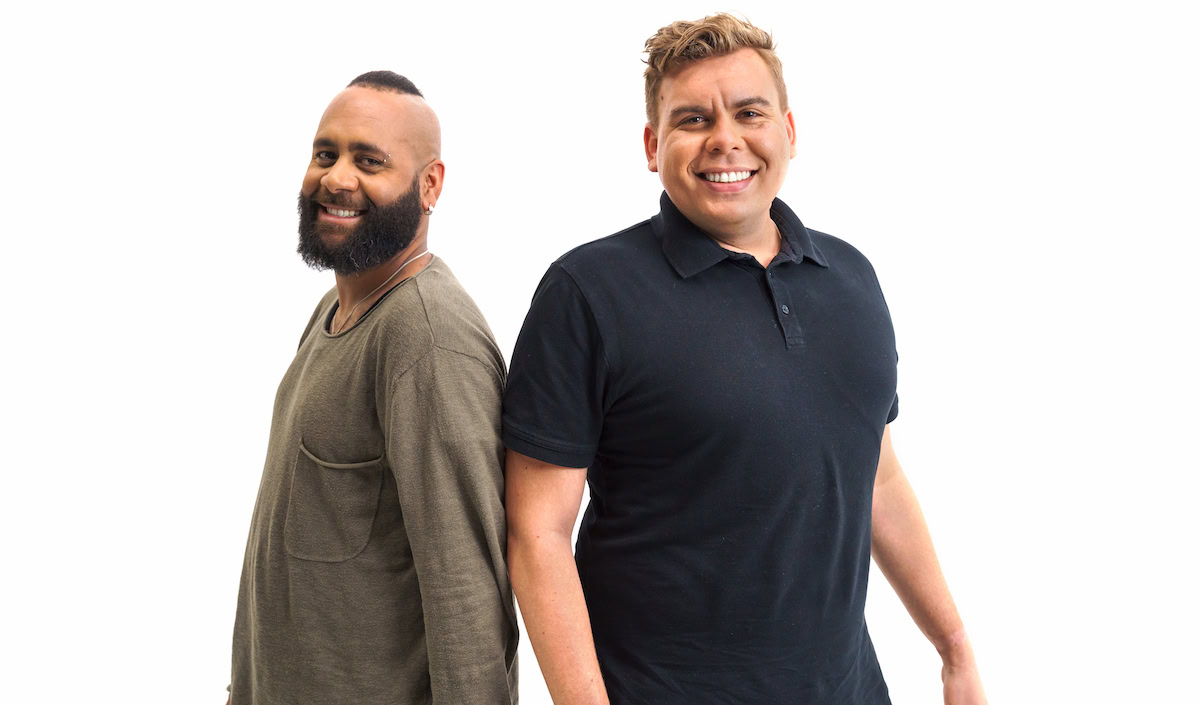
Steven Satour, a Yankunytjatjara and Pitjantjatjara gay man who features in R U OK?’s new Stronger Together campaign, says rates of Indigenous suicide have reached a “crisis point”.
“We are seeing such unacceptable rates of people taking their own lives,” Satour says.
He features alongside other Aboriginal and Torres Strait Islander role models and community leaders in R U OK?’s new Indigenous suicide prevention campaign, Stronger Together, which launched last week.
Satour, an entrepreneur and member of the NAIDOC Committee, says the name of the campaign has particular meaning for him as an Aboriginal gay man.
“The title is so simple and powerful,” he says. “It’s steeped in our cultural practice of being a community and ensuring that no one gets left behind. That is what resonates with me.”
The campaign was developed with the guidance of an Aboriginal and Torres Strait Islander Advisory Group alongside 33 Creative, an Aboriginal-owned and managed media agency.
Stronger Together emphasises the role of individuals in engaging and offering support to family and friends who may be struggling.
Positive and culturally appropriate resources were developed with the campaign to help individuals feel more confident in starting conversations by asking, simply, “R U OK?”
“We need to be asking that question ‘R U OK?’ because something so simple might just be the little bit of light needed in someone’s life,” Satour says.
The Stronger Together message comes at a time when reducing rates of suicide and poor mental health looms as one of the major challenges of a generation.
Suicide is one of the most common causes of death among Aboriginal and Torres Strait Islander people, with a 2016 report noting that, on average, over 100 ATSI people end their lives through suicide each year.
The Indigenous suicide rate is twice as high as that recorded for other Australians, with rates of suicide among Indigenous people who identify as LGBTI unknown due to a lack of funding for research and empirical data collection.
This is beginning to change, however, with the mental health needs of Indigenous LGBTI youth the focus of a three-year research project which received federal funding last year.
Indigenous LGBTI suicide prevention organisation Black Rainbow, which will consult on the first-of-its-kind research, hs moved to respond to that need at a community level.
The organisation’s founder, Dameyon Bonson, called out the lack of LGBTI people involved in the creation, policy and delivery of Indigenous health programs – as well as the past lack of Indigenous involvement in LGBTI health programs – in a presentation at the Queer(y)ing Justice in the Global South Conference in Sydney last year.
“It is within Indigenous health where Indigenous queers have been ignored, excluded and erased. Similarly, racism also exists in queer health literature,” Bonson said.
“However, the manner in which these two communities are articulated separates us as two separate identities, rendering Indigenous LGBTI people [invisible].
“The absence of Indigenous LGBQTI people from Indigenous health is supported by the ongoing structural exclusion we face at an Indigenous health policy level.”
Satour says Stronger Together only serves to highlight the broader shortfall in terms of funding and advocacy around Indigenous LGBTI suicide prevention.
“This campaign being a first of its kind really highlights how mental health services [have been lacking] for Indigenous LGBTI people.
“And when there are support and services being set up, are they being done with Indigenous LGBTI people to make sure that they are then being accessed?”
Satour also notes the dual discrimination that Indigenous LGBTI people can face, creating “a constant state of being unsure where you fit in and a sense of rejection.”
“When you aren’t visible its extremely hard to talk about the issues that affect you. That’s why I wanted to be part of the campaign to be a part of something that’s increasing our visibility.”
Chair of R U OK?’s Aboriginal and Torres Strait Islander Advisory Group, Dr Vanessa Lee, says Stronger Together comes at a “critical time”.
“As a community we are Stronger Together. Knowledge is culture, and emotional wellness can be learned from family members such as mothers and grandmothers,” Lee says.
“These new resources from R U OK? will empower family members, and the wider community, with the tools to look out for each other as well as providing guidance on what to do if someone answers, ‘No, I’m not OK’.”
Satour also features alongside high-profile sportspeople like former NRL player Joe Williams and sports pioneer Marcia Ella-Duncan in a series of videos featuring real conversations around their experiences and the positive impact that sharing those experiences had on them.
In a video titled ‘Let’s talk, we’re stronger together’, Satour speaks with Quinton Vea Vea about how their friendship has gotten them both through tough times.
“It’s really just about asking the question and being prepared to listen,” Santour says of Stronger Together’s message.
“It’s not always about fixing the problem right then and there. Being able to articulate your feelings and just have someone listen is a really powerful way to show your support.”
To view the Stronger Together resources, head to ruok.org.au/strongertogether.
If you or someone close to you is struggling and needs someone to speak to, you can contact one of these services:
Switchboard/QLife: 1800 184 527
Headspace: 1800 650 890
beyondblue 1300 224 636
Lifeline: 13 11 14
